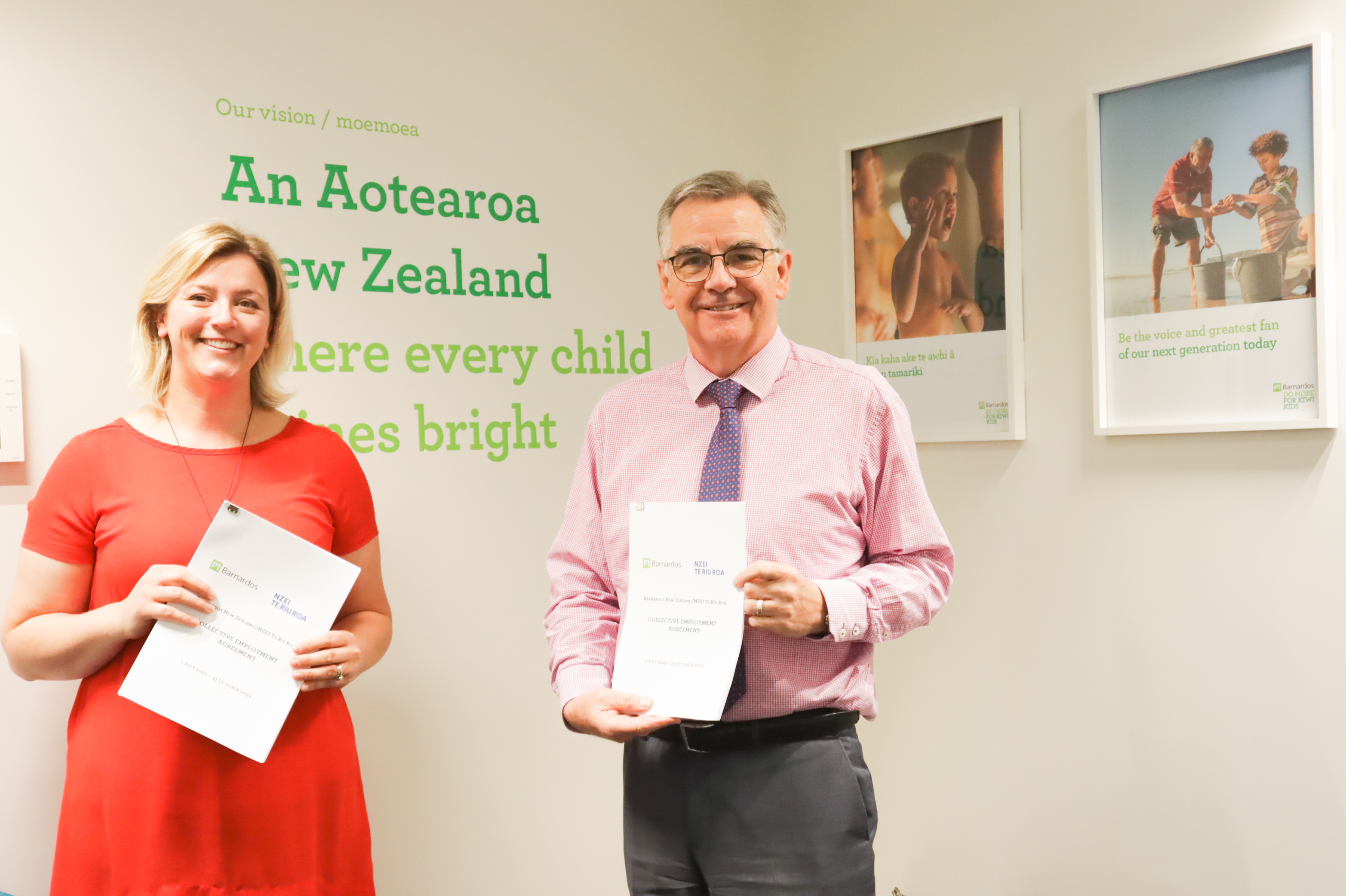Media Release - Pay Parity
Big News for BEL
Barnardos Early Learning Services and NZEI Te Riu Roa achieve a historic step towards pay parity for ECE Teachers
On 24 November 2021, Barnardos and the New Zealand Educational Institute (NZEI) signed our collective employment agreement (CEA) taking the first steps in delivering on our shared commitment to achieving pay parity with kindergarten teachers.
Early childhood teachers working for Barnardos will receive significant pay increases as a result of a new collective agreement that introduces pay parity with their colleagues in kindergartens and schools.

The agreement, signed this week between Barnardos and NZEI Te Riu Roa, embeds the first five pay steps of the kindergarten teachers’ pay scale for all Barnardos Early Learning kaiako, and is only the beginning of properly recognising the hard mahi of early childhood education.
Barnardos Early Learning General Manager, Heather Taylor, says seeing this come into effect is significant for Barnardos Early Learning kaiako and for our whole organisation.
“We are excited to be able to take action to ensure that our kaiako can be paid fairly for the work they do. Pay parity for the first five steps is a good start, but there is still work to be done.
While I’m pleased that increased government funding for early childhood education has enabled us to take this step, it doesn’t cover the total cost which we have had to find and were determined to do so given our commitment to Early Learning. We are continuing to encourage the Ministry of Education to work with urgency to make fundamental changes to the funding model that will support fair pay for the early learning profession.”
NZEI Te Riu Roa negotiations leader Allanah Clark says valuing ECE teaching properly is critical to ensuring all tamariki thrive. “We are hopeful the new pay steps will help alleviate financial stress for teachers and their whānau and start to reverse the teacher shortage in the sector. Making sure we can keep and attract great people into teaching benefits our tamariki and is an investment in our future as a society.”
ENDS

